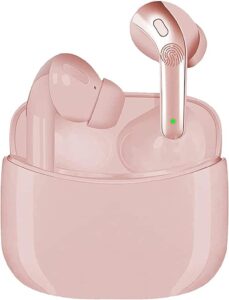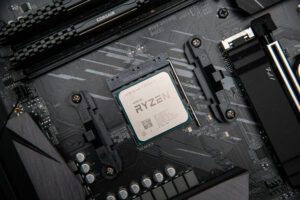Data science is a field that offers excellent career opportunities for those who are skilled and knowledgeable in the area. Data scientists are in high demand due to the need for businesses and organizations to make sense of large amounts of data. A data scientist needs to understand how to interpret, analyze, and organize data. They also has to be able to communicate it effectively. The job outlook for data scientists is strong in the market.
To become a successful data scientist, there are certain skills you will need to develop and master. These include knowledge of programming languages such as Python or R, as well as expertise in areas such as machine learning, statistics, and big data analytics. Additionally, data scientists should have strong communication skills and be able to work collaboratively with others.
To stand out as a successful data scientist, it is important to have a portfolio of work that highlights the skills and experience you have gained. You can display this in your resume, on personal websites or blogs, or even through creating projects while you are still studying. This demonstrates that you understand how data science works and what it is used for.
Data Analysis Skill: What to learn to become a great data Scientist
Programming:
Knowledge of programming languages such as Python or R is essential for a data scientist. These languages allow you to manipulate and analyze data, build models, and create visualizations.
Machine Learning:
Machine learning algorithms are used to automate processes and make predictions based on the data available. Understanding machine learning concepts is important in order to effectively use them in your work.
Statistics:
Data scientists need a strong understanding of statistics in order to be able to draw meaningful conclusions from the data they have collected and analyzed. This includes knowledge of probability theory, hypothesis testing, linear regression, etc.
Big Data Analytics:
Big data analytics involves dealing with complex datasets and making sense of it by running statistical analyses or building models. It requires the use of big data tools and technologies as well as knowledge of programming languages.
Data Visualization:
Being able to create clear, informative visualizations is key for presenting data in an effective way. Knowledge of software such as Tableau or Power BI can be helpful here.
Communication:
A successful data scientist needs to be able to communicate their findings and recommendations clearly to stakeholders, whether they are technical or nontechnical personnel. Strong communication skills are therefore essential.
Collaboration:
While data scientists often work independently on projects, it is important that they are also able to collaborate with other team members in order to get the most out of a project. This includes understanding how different roles within a team interact and contribute to the success of a project.
What Programing Language Need To Learn For Data Science
1.Python:
Python is the most popular programming language for data science. It has a large library of scientific computing and machine learning tools, making it easy to manipulate data and create models.
2.R:
R is an open source programming language specifically designed for statistical analysis and visualization. It is widely used in academia and industry as well as by individuals who want to perform their own data analysis.
3.Java:
Java is a general purpose programming language that can be used for data science tasks such as creating web applications or processing large datasets.
4.Scala:
Scala is a functional programming language that combines object-oriented features with those of a functional language. It can be used for distributed computation, big data analytics, and other data science tasks.
5.Julia:
Julia is a high-level, dynamic programming language designed for numerical and scientific computing. It has many features specifically tailored to data science applications.
6.SQL:
Structured Query Language (SQL) is widely used by data scientists to query databases and perform data analysis tasks. Knowing how to write queries in SQL can be incredibly helpful when analyzing large datasets or creating reports from databases.
These are just some of the skills and languages that you need to become a successful data scientist. With dedication and hard work, you can become an expert in these areas and make yourself an attractive hire for companies looking for talented data scientists.By mastering these skills, you will be well on your way to becoming a successful data scientist. With the right qualifications and experience, the job market is ripe for those who have what it takes to succeed.
Salary of Data Scientist
The median salary for a data scientist is around $90,000 per year. However, this can vary depending on experience and qualifications. Highly talented individuals in the field have been known to command up to six figures annually with the right set of skills and knowledge. The job market for data science is expected to grow significantly in the coming years as organizations continue to take advantage of big data technology.
In addition to salary, many employers also offer other benefits such as flexible working hours, bonuses and stock options. Some companies may even provide additional training or conferences that could help you stay up-to-date with industry trends and advancements in data science tools and techniques.
Data Scientist Job Description
Data scientists are responsible for gathering, analyzing and interpreting large sets of data. They use specialized software to uncover patterns and trends in the data that can be used to make better business decisions. Common tasks include developing algorithms, building predictive models, creating visualizations of data and presenting findings to stakeholders.
Data scientists must have strong technical skills such as programming languages (Python, R), database manipulation (SQL) and machine learning techniques. In addition, they also need excellent problem-solving abilities, communication skills as well as an understanding of business processes and industry trends. It is essential for them to stay up-to-date with developments in the field in order to be able to leverage new technologies and tools effectively.
FAQ
What qualifications do I need to become a data scientist?
To become a data scientist, you will need to have a solid understanding of mathematics and statistics as well as computer science and programming skills. You should also have experience working with databases and be proficient in at least one language such as Python or R.
What is the job market like for data scientists?
The demand for qualified data scientists has been increasing rapidly, making it an attractive career option for those who have the right set of skills and knowledge to succeed in the field. Companies are willing to pay handsomely for individuals who are able to leverage their expertise in order to help them make better decisions based on their data.
What types of tasks does a data scientist do?
A data scientist will typically be responsible for gathering, analyzing and interpreting large sets of data. This can include developing algorithms, building predictive models, creating visualizations of data and presenting findings to stakeholders. They must have strong technical skills such as programming languages (Python, R), database manipulation (SQL) and machine learning techniques. In addition, they also need excellent problem-solving abilities, communication skills as well as an understanding of business processes and industry trends.
It is essential for them to stay up-to-date with developments in the field in order to be able to leverage new technologies and tools effectively.
What salary can I expect as a data scientist?
The median salary for a data scientist is around $90,000 per year. However, this can vary depending on experience and qualifications. Highly talented individuals in the field have been known to command up to six figures annually with the right set of skills and knowledge. In addition to salary, many employers also offer other benefits such as flexible working hours, bonuses and stock options. Some companies may even provide additional training or conferences that could help you stay up-to-date with industry trends and advancements in data science tools and techniques.
What type of environment will I be working in as a data scientist?
Depending on the organization, data scientists can work in a variety of settings ranging from research laboratories to corporate offices. Generally, they are expected to analyze large sets of data and develop models that can be used by stakeholders to make informed decisions. As such, they must possess excellent problem-solving skills and be able to communicate their findings effectively. In most cases, there is also an emphasis on staying up-to-date with industry trends and advancements in data science tools and techniques through additional training or conferences.
How do I stay competitive as a data scientist?
To stay competitive as a data scientist, it is important to stay up-to-date with developments in the field. This means attending conferences and seminars related to the latest advancements in data science tools and techniques. It also involves staying informed on industry trends and networking with other professionals in the field. Additionally, having additional certifications or qualifications can help you stand out from your peers and provide more opportunities for career advancement.
What skills do I need to become a successful data scientist?
To become a successful data scientist, you will need to have a solid understanding of mathematics and statistics as well as computer science and programming skills. You should also be proficient in at least one language such as Python or R, have experience working with large datasets and be able to communicate your findings effectively. Additionally, problem-solving abilities, creativity, an understanding of business processes and industry trends are essential for success in this field. Lastly, staying up-to-date with developments in the field through additional training or conferences will help you stay competitive as a data scientist.
These skills and knowledge can be gained through a combination of formal education such as a degree in computer science or mathematics as well as on-the-job experience. Additionally, having certifications or qualifications related to data science may also increase your chances of finding employment opportunities and succeeding in the field.
Overall, data scientists play an important role in today’s digital world by helping organizations make sense of large datasets and develop models that can be used to make informed decisions. To become successful in this field, one must possess excellent problem-solving skills, be proficient in computer science and programming languages and have a good understanding of business processes and industry trends. Additionally, staying up-to-date with developments through additional training or conferences is essential for success as a data scientist. With the right set of skills and qualifications, you could command a highly competitive salary while enjoying the benefits of working within this exciting field.



